SUMMARY
This is AI generated summarization, which may have errors. For context, always refer to the full article.
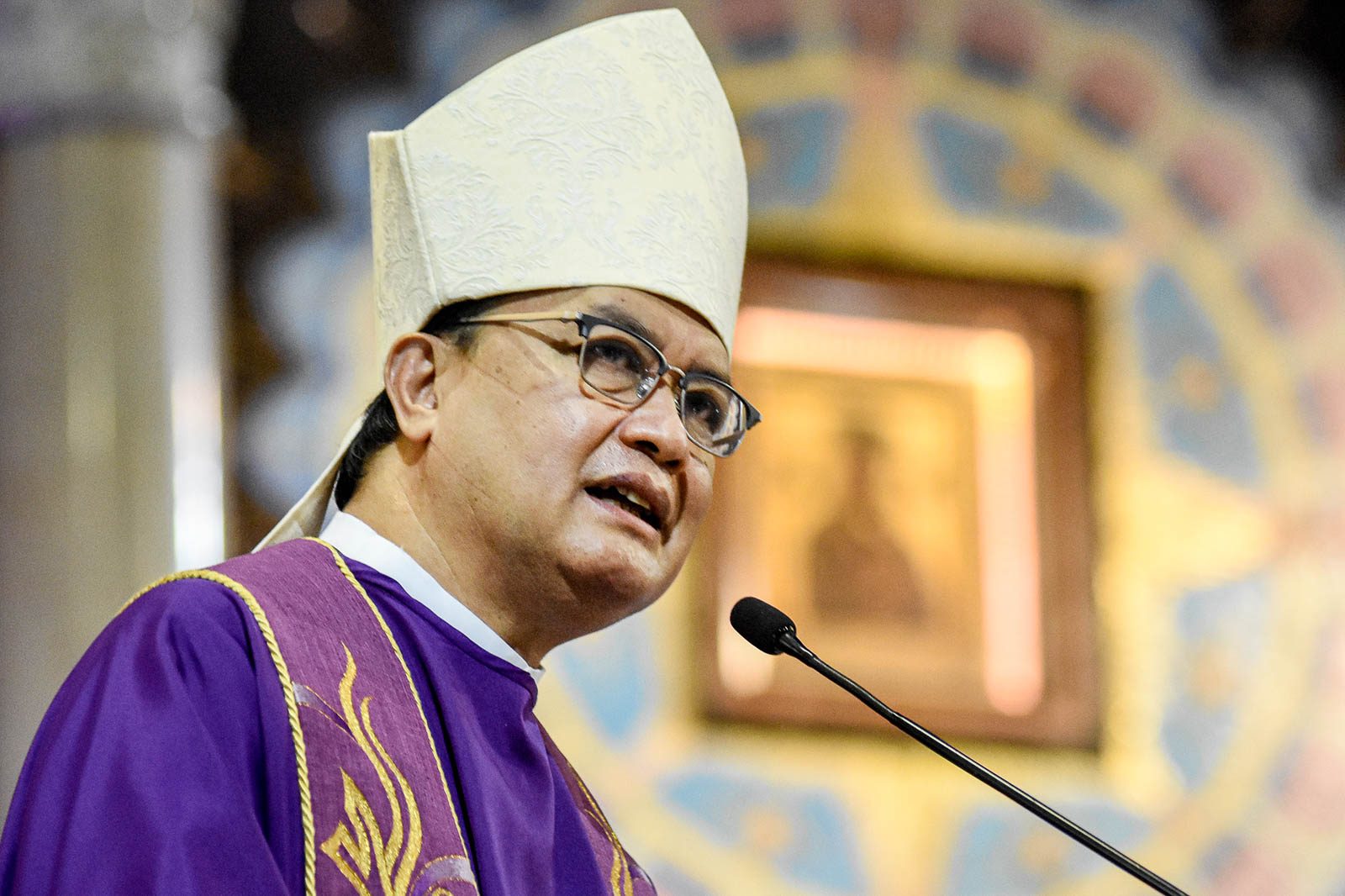
MANILA, Philippines – Kalookan Bishop Pablo Virgilio David, president of the Catholic Bishops Conference of the Philippines (CBCP), saw no need to elaborate on the Vatican document Fiducia Supplicans (Supplicating Trust), which allowed priests to bless same-sex couples.
David’s advisory took a different approach to guidance released separately earlier by Lingayen-Dagupan Archbishop Socrates Villegas and Tuguegarao Archbishop Ricardo Baccay, who both expounded on the Vatican’s pronouncement.
“The document speaks for itself, and therefore does not require much explanation,” David wrote in the advisory dated Wednesday, December 20 and available on the CBCP’s website.
The CBCP head did not feel the need to say much that he referred readers to the document’s full text on the Vatican website.
“Allow us therefore, in the name of the Catholic Bishops’ Conference of the Philippines (CBCP) to simply attach here a link to the document itself, for those interested to know and understand what the document itself is saying,” the bishop wrote.
These pronouncements reflect how Catholic leaders worldwide–as well as its clergy and members–are grappling with Monday’s landmark announcement.
David: 5 key points
The CBCP advisory emphasized five key paragraphs that were “worth highlighting.” The passages urged priests not to judge, deny, or require any prerequisites in blessing same-sex couples or those in “irregular situations,” while reiterating the church’s traditional teaching on marriage and prohibiting any rite that could mistake the blessing for a wedding.
These key paragraphs were:
- “…Pope Francis urged us not to close pastoral charity, which should permeate all our decisions and attitudes and to avoid being judges who only deny, reject, and exclude. Let us then respond to the Holy Father proposal by developing a broader understanding of blessings.” (paragraph 13)
- “…when people ask for a blessing, an exhaustive moral analysis should not be placed as a precondition for conferring it. For, those seeking a blessing should not be required to have prior moral perfection.” (paragraph 25)
- “Within the horizon outlined here appears the possibility of blessings for couples in irregular situations and for couples of the same sex, the form of which should not be fixed ritually by ecclesial authorities to avoid producing confusion with the blessing proper to the Sacrament of Marriage. In such cases, a blessing may be imparted… upon those who, recognizing themselves to be destitute and in need of his help, do not claim a legitimation of their own status, but who beg that all that is true, good, and humanly valid in their lives and their relationships be enriched, healed, and elevated by the presence of the Holy Spirit.” (paragraph 31)
- “For this reason, one should neither provide for nor promote a ritual for the blessings of couples in an irregular situation. At the same time, one should not prevent or prohibit the Church’s closeness to people in every situation in which they might seek God’s help through a simple blessing.” (paragraph 38)
- “…precisely to avoid any form of confusion or scandal, when the prayer of blessing is requested by a couple in an irregular situation… the blessing should never be imparted in concurrence with the ceremonies of a civil union, and not even in connection with them. Nor can it be performed with any clothing, gestures, or words that are proper to a wedding.The same applies when the blessing is requested by a same-sex couple.” (paragraph 39)
A CBCP issuance provides guidance and information to all Catholic bishops in the Philippines, but specific implementation and interpretation will still depend on the bishop of a particular diocese.
Specific guidance from Villegas, Baccay
Prior to the CBCP circular, Villegas published guidance for the Archdiocese of Lingayen-Dagupan on Tuesday, December 19–the first Filipino bishop to publicly do so.
In his issuance, Villegas said that the blessings for same-sex couples and those in “irregular situations” are blessings of mercy that ask God “to have pity on both of them and to give them the grace of conversion so that they can regularize their relationships.” He also advised priests in his diocese “to choose the appropriate words to reveal this intent of the Church.”
In a document posted in the public Facebook page of Father Ranhilio Aquino, a prominent priest of the Archdiocese of Tuguegarao, Baccay said that clergy and lay leaders “should instruct the faithful on the meaning of a blessing” and its “two-fold movement” of invoking God’s favor, mercy, and care, as well as rendering God praise and homage.
Baccay wrote that Fiducia Supplicans “recognizes that persons in problematic and difficult situations – divorced couples, persons living in as spouses without benefit of marriage, same-sex couples, convicts and persons detained on charges of serious crime – may ask to be blessed.”
“To refuse them a blessing when they sincerely ask for it would be arrogance and insensitivity that are alien to the Gospel,” Baccay said.
But the archbishop pointed out that the blessing should “not confuse people in respect to the teaching and discipline of the Church and does not foster in the blessed persons mistaken beliefs.”
Specific guidelines were then given by Baccay, including whether the blessing should be done in public or private, and also the blessing’s emphasis on asking for “God’s mercy, compassion, love and care.” The guidelines state that the blessings are not to be done in the context of a Mass or any liturgical activity. When it appears that supplicants have assembled an “audience” that will witness their reception of the blessing, Baccay said that the blessing should be withheld.
Using symbols associated with marriage such as rings and cords are “absolutely forbidden,” Baccay said. Mass or public blessings of “persons in problematic situations” are also not allowed.
And while “spontaneity should be the general norm,” Baccay listed common Catholic blessings that priests can use.
Baccay also encouraged “persons in problematic relations” to “seek spiritual counselling from qualified lay persons or from the pastor or his parochial vicars so that they may be instructed” on the teachings of the Church and the reasons behind it. – Rappler.com
Add a comment
How does this make you feel?
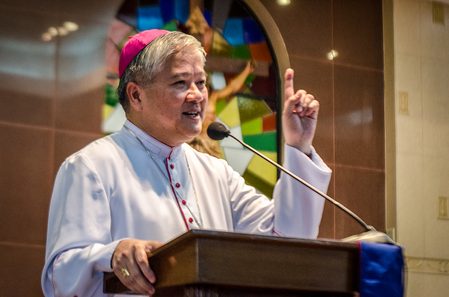
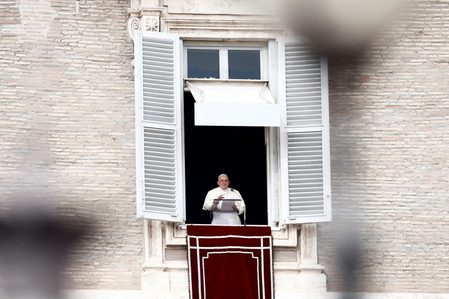

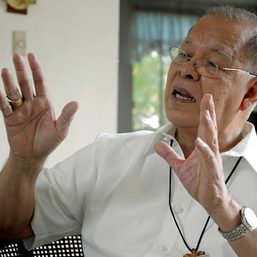
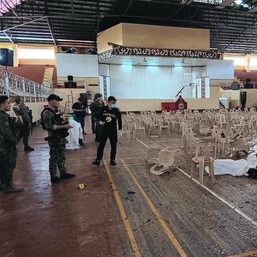
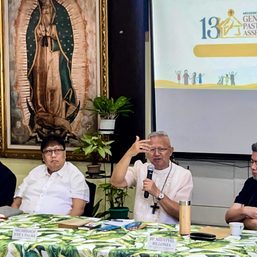
![[The Wide Shot] Peace be with China](https://www.rappler.com/tachyon/2024/07/wideshot-wps-catholic-church.jpg?resize=257%2C257&crop=311px%2C0px%2C720px%2C720px)
![[OPINION] A critique of the CBCP pastoral statement on divorce](https://www.rappler.com/tachyon/2024/07/TL-cbcp-divorce-statement-july-19-2024.jpg?resize=257%2C257&crop=285px%2C0px%2C722px%2C720px)


![[The Wide Shot] Was CBCP ‘weak’ in its statement on the divorce bill?](https://www.rappler.com/tachyon/2024/07/cbcp-divorce-weak-statement.jpg?resize=257%2C257&crop=258px%2C0px%2C719px%2C720px)








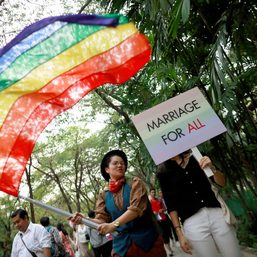
There are no comments yet. Add your comment to start the conversation.